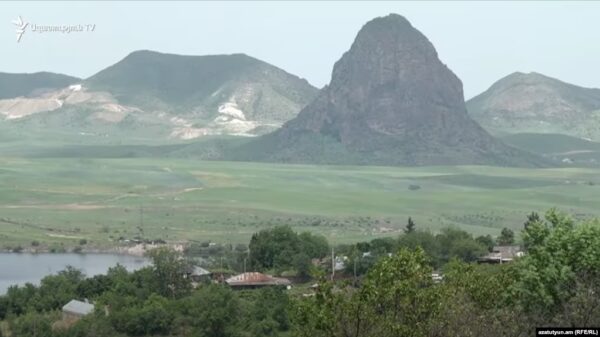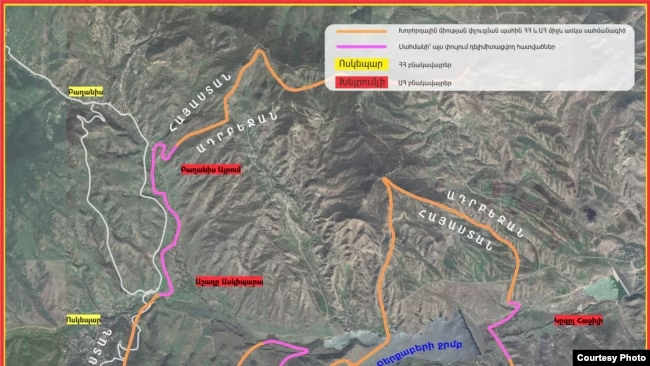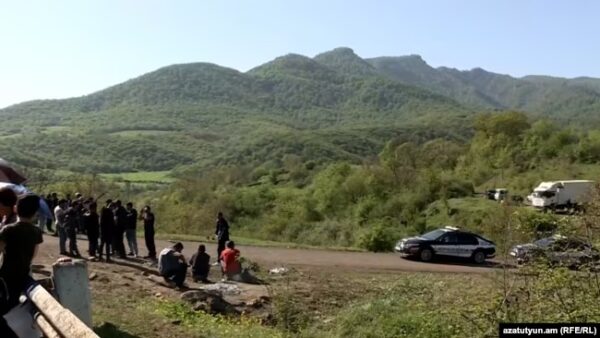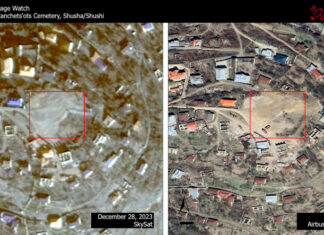YEREVAN (Azatutyun) — Senior US and European Union diplomats discussed with Armenia’s leaders on Monday, April 22, the implementation of their controversial border delimitation agreement with Azerbaijan hailed by Western powers.
The issue was understood to be high on the agenda of Prime Minister Nikol Pashinyan’s meeting with Toivo Klaar, the EU’s special envoy to the South Caucasus. According to an Armenian government statement, Klaar reaffirmed EU support for “the agreement to launch the delimitation process on the basis of the 1991 Alma-Ata Declaration” signed by newly independent former Soviet republics. The latter thus recognized each other’s Soviet-era borders.
Following the eighth round of talks between Armenian Deputy Prime Minister Mher Grigoryan and his Azerbaijani counterpart Shahin Mustafayev that was held at an undisclosed section of the Armenian-Azerbaijani border on April 19 the parties announced a preliminary agreement that the initial stage of the delimitation process will involve sections between four villages in the territory of Armenia’s Tavush province and four abandoned villages that used to be part of Azerbaijan’s Qazax district in the Soviet times.
The deal commits Armenia to making unilateral territorial concessions to Azerbaijan. The four areas used to be occupied by small Azerbaijani villages captured by Armenian forces in 1991-1992. For its part, Azerbaijan had seized at the time large swathes of agricultural land belonging to several Tavush villages. None of that land will be given back to Armenia under the terms of the preliminary border deal reached on April 19.

Prime Minister Nikol Pashinyan defended the deal welcomed by Western powers, saying that it will help to prevent another war with Azerbaijan. However, many residents of the Tavush villages close to the contested border areas are strongly opposed to it, saying that they would lose access to their existing agricultural land, have trouble communicating with the rest of the country and be far more vulnerable to Azerbaijani armed attacks. .
The delimitation on the mentioned sections is to be completed by the middle of May, the parties agreed.












